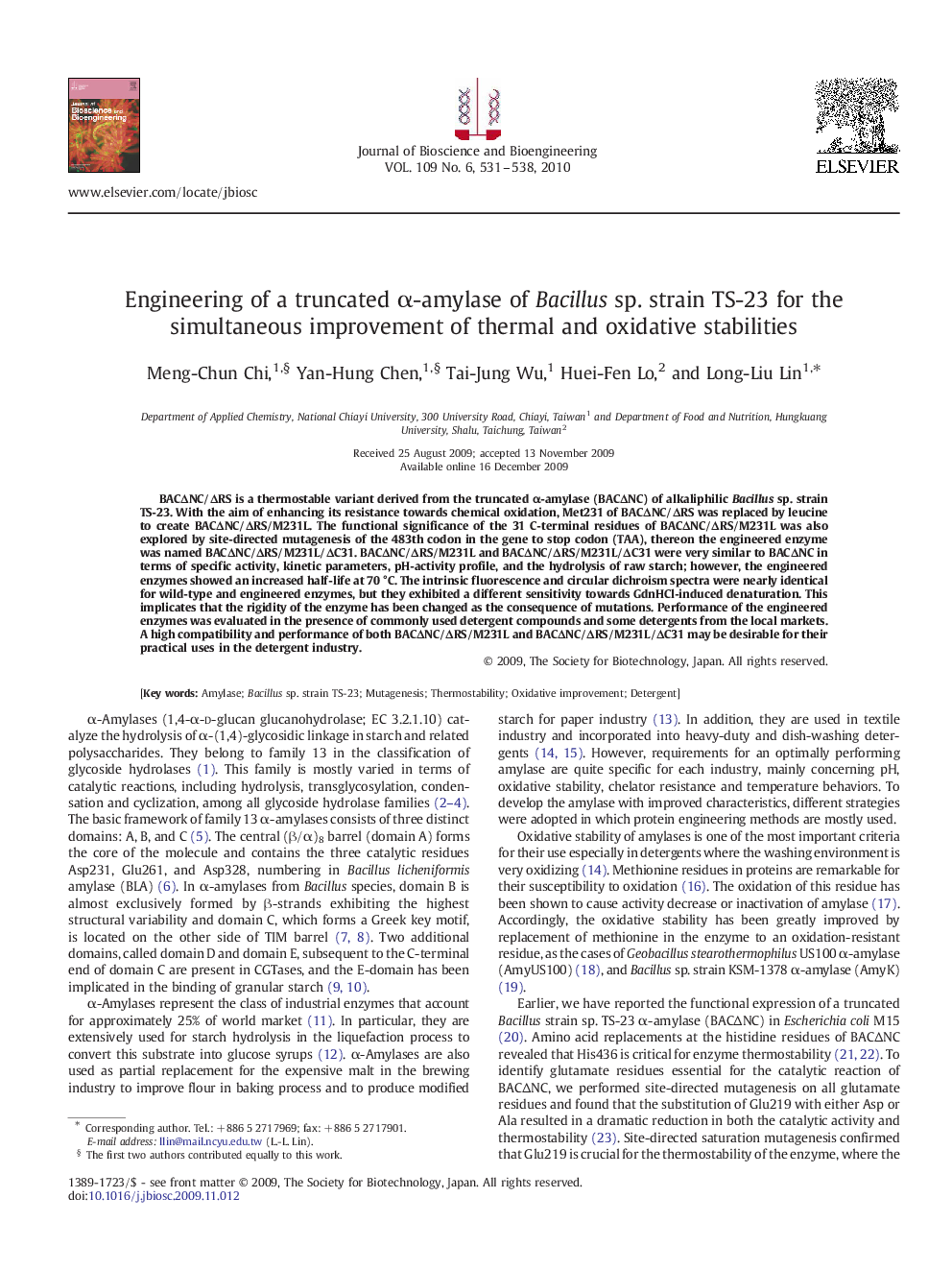| Article ID | Journal | Published Year | Pages | File Type |
|---|---|---|---|---|
| 21891 | Journal of Bioscience and Bioengineering | 2010 | 8 Pages |
BACΔNC/ΔRS is a thermostable variant derived from the truncated α-amylase (BACΔNC) of alkaliphilic Bacillus sp. strain TS-23. With the aim of enhancing its resistance towards chemical oxidation, Met231 of BACΔNC/ΔRS was replaced by leucine to create BACΔNC/ΔRS/M231L. The functional significance of the 31 C-terminal residues of BACΔNC/ΔRS/M231L was also explored by site-directed mutagenesis of the 483th codon in the gene to stop codon (TAA), thereon the engineered enzyme was named BACΔNC/ΔRS/M231L/ΔC31. BACΔNC/ΔRS/M231L and BACΔNC/ΔRS/M231L/ΔC31 were very similar to BACΔNC in terms of specific activity, kinetic parameters, pH-activity profile, and the hydrolysis of raw starch; however, the engineered enzymes showed an increased half-life at 70 °C. The intrinsic fluorescence and circular dichroism spectra were nearly identical for wild-type and engineered enzymes, but they exhibited a different sensitivity towards GdnHCl-induced denaturation. This implicates that the rigidity of the enzyme has been changed as the consequence of mutations. Performance of the engineered enzymes was evaluated in the presence of commonly used detergent compounds and some detergents from the local markets. A high compatibility and performance of both BACΔNC/ΔRS/M231L and BACΔNC/ΔRS/M231L/ΔC31 may be desirable for their practical uses in the detergent industry.
